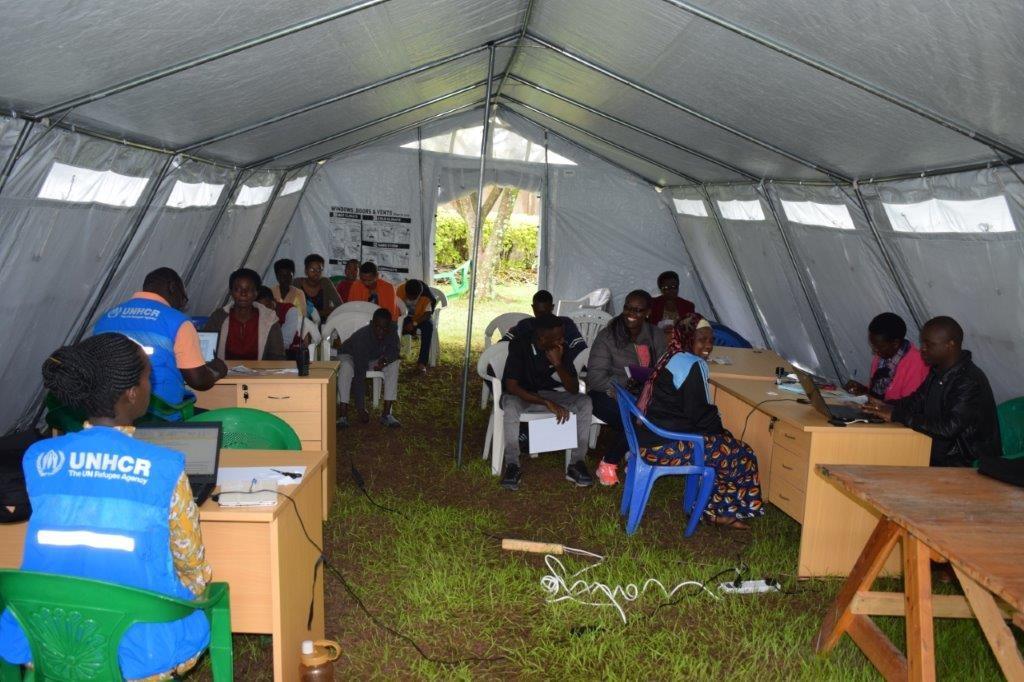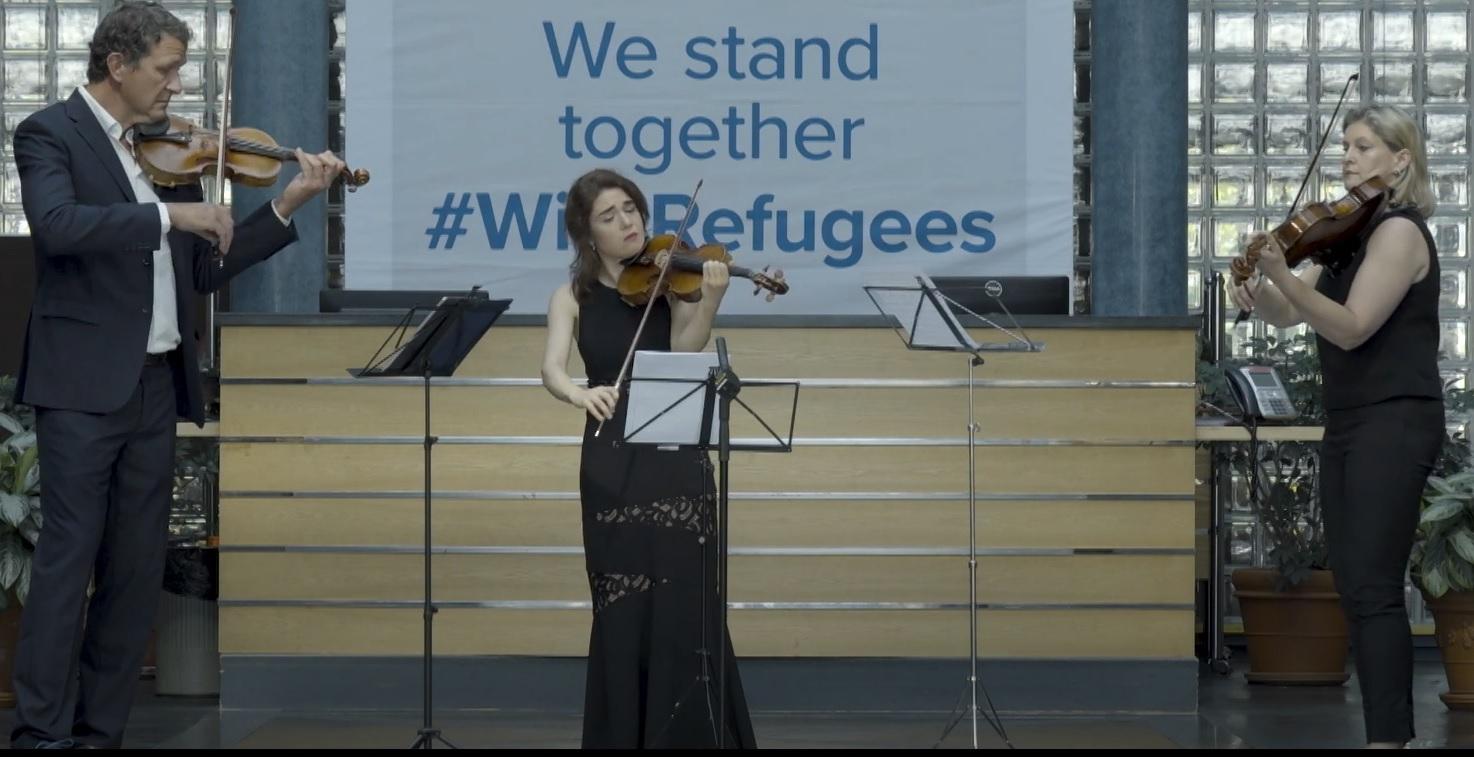The last protection monitoring revealed over 50 per cent of Venezuelan refugees and migrants interviewed in Peru had specific needs.
© UNHCR / R. Portilla
Introduction: Access to national services for vulnerable refugees in Peru
This initiative has allowed asylum-seekers, migrants or foreigners with heightened vulnerabilities to access the public healthcare system. Through the Special Immigration Status, the Carné de Extranjería (Special Immigration Card), the holder can legally remain in the country and access a range of rights including education, work, and healthcare, among others.
Apart from people evaluated as vulnerable by competent authorities that obtain the Immigration Card, only pregnant women and children under five may apply for access to public or subsidized healthcare. Therefore, most asylum-seekers and special-stay permit holders (PTP by its acronym in Spanish) are currently excluded from free and public healthcare services.
Within this context and the emergency of the coronavirus epidemic (COVID-19), significant advocacy efforts have prompted the introduction of the Legislative Decree No. 1466, granting full access to testing and treatment for COVID-19 related health needs for persons of concern.
An inclusive response to COVID-19
How is the project being impacted by the Covid-19 situation?
Following the declaration of a national state of emergency in Peru due to the COVID-19 pandemic, effective since 16 March 2020, several measures have been implemented including mandatory social isolation, closure of borders, nightly curfew, full restrictions on movement on Sundays, and the closure of all non-essential businesses. Such measures placed a large majority of Venezuelans, who are living on daily earnings and quarantined in overcrowded and substandard conditions, at heightened vulnerability and risk.
Due to the reduced mobility imposed by the emergency, the presence and activities of UNHCR and its partners, the migration office, and most importantly, health facilities, have been overwhelmed by COVID-19 cases. As a result, their activities in many other areas have been reduced. This has slowed the identification and management of cases. Innovative ways have been put in place to access refugees and migrants, using hotlines and other communication means.
What are the first lessons learned from the COVID-19 crisis?
In a country where access to health is limited, even for the local population, the COVID-19 pandemic highlighted a great need to expand capacities within the sector, to provide coverage for both the host community and some one million refugees and migrants from Venezuela (this figure is an estimated number considering the irregular entries).
The COVID-19 pandemic highlighted a great need to expand capacities within the [health] sector, to provide coverage for both the host community and some one million refugees and migrants from Venezuela.
Refugees and migrants who are evaluated as vulnerable by competent authorities may access the Foreigner ID and through it access to the public healthcare system.
© UNHCR / R. Portilla
How is the project contributing to an effective, refugee-inclusive COVID-19 response in Peru?
Based on currently available information and clinical expertise, older adults and people of any age who have serious underlying medical conditions might be at higher risk of severe illness from COVID-19. As a result of strong advocacy by UNHCR, IOM, UNFPA and WHO, the Peruvian authorities have included refugees and migrants who are diagnosed or suspected of having COVID-19 into the public healthcare system, as of April 2020, the government issued a Legislative Decree (No. 1466), which temporarily includes asylum-seekers, refugees and migrants into the subsidized health system for COVID-19 care, until the patient is cleared.
Within the context of the COVID-19 emergency, this project is very relevant and timely.
What challenges have you faced and what steps have you taken to address them?
The health system is under extreme pressure as COVID-19 positive cases continue to increase in the country, ranking it second in the number of cases in the region - and number 6 globally. Health facilities are still not properly equipped with personal protection equipment, which raises fears that the infection can spread easily within the health facilities. Testing capacity is also not fully available, intensive care beds are not enough to cope with the need, and hospital isolation areas’ capacity is not sufficient
Furthermore, basic health services have been put on hold due to the prioritization of health resources to address the COVID-19 cases.
UNHCR is supporting the Ministry of Health in the provision of Refugee Housing Units (RHU) to support the expansion of care and isolation capacity of some hospitals.
In addition, through UNHCR partners, UNHCR is assisting refugee and migrants in guesthouses and hotels to address their basic needs in terms of food, and basic health support, psychological support and managing suspected cases of COVID-19, through disinfection and personal protection equipment (PPE). In addition, it has reinforced communication campaign messaging and recommendations to prevent transmission of the coronavirus.



